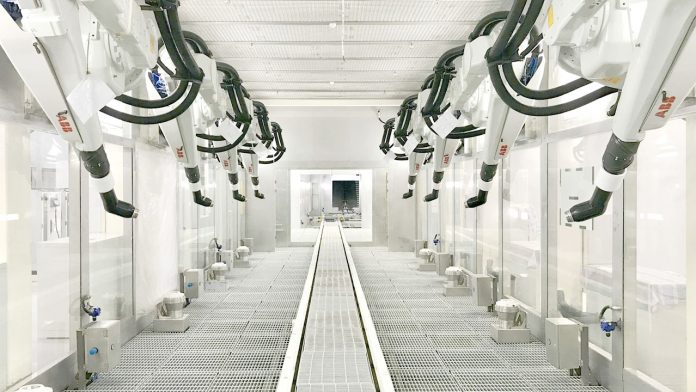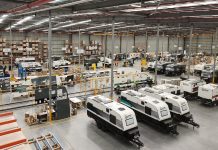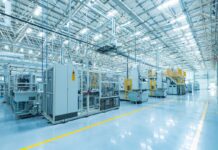
Leading mobility company Ola has selected ABB as one of its key partners for robotics and automation solutions for its mega-factory in India.
Last month, Ola unveiled plans to build the world’s largest scooter manufacturing facility in India, in partnership with global tech giant Siemens.
The mega-factory, which will roll out the much-anticipated Ola electric scooter, is expected to be ready and operational in the coming months.
Under the agreement, Ola will utilise ABB’s automation solutions in its factory’s key manufacturing process lines, including its painting and welding lines, while the ABB robots will be deployed extensively for the battery and motor assembly lines.
Bhavish Aggarwal, Chairman and Group CEO, Ola said the ABB robots will be digitally integrated into Ola’s AI-enabled mega-factory, to optimise robot performance, productivity and product quality.
“We are delighted to bring on board ABB, a global leader in robotics, machine automation and digital services, as a key supplier and partner for robotics and automation solutions that will be deployed at our scooter mega-factory,” Mr Aggarwal said.
“ABB’s solutions will be riding on Ola’s own proprietary AI engine and tech stack embedded in our scooter mega-factory.
“We are bringing in global expertise and stitching up partnerships that will help us build out our factory in record speed and roll out the first of our electric scooters in the coming months.”
Andrea Cassoni, managing director of general industries at ABB Robotics, said ABB’s robot solutions will become key components of Ola’s new, advanced facility.
“This level of automation will enable Ola to consistently achieve their twin objectives of high productivity and high quality,” Mr Cassoni said.
“This, together with the high levels of flexibility our robot solutions offer, demonstrates how technology can transform manufacturing and ensure Ola’s mega-factory is a great example of a factory of the future, for many years to come.”
Ola’s mega-factory will have an initial annual capacity of 2 million units, creating 10,000 jobs and serving as the company’s global manufacturing hub for both India and international markets across Europe, UK, Latin America, Australia and New Zealand.
Once fully operational, it is also expected to be the country’s most automated factory, with about 5,000 robots and automated guided vehicles in use.



















